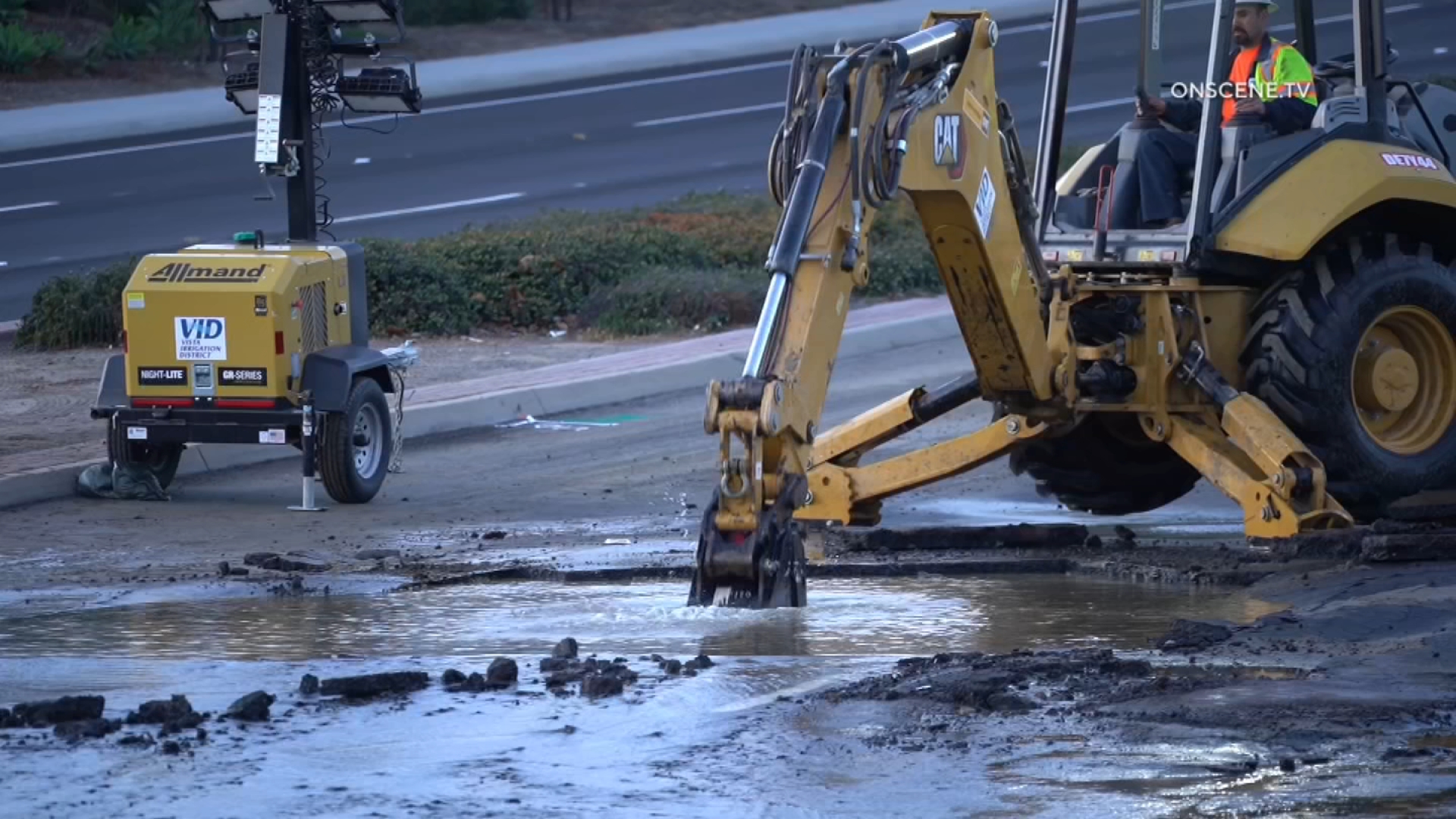The county Board of Supervisors has voted unanimously to continue a local emergency declaration due to U.S.-Mexico transboundary pollution, but not without first hearing from South Bay residents who pressed for more action.
The board first approved an emergency proclamation in June 2023 in response pollution and sewage flowing across the U.S.-Mexico border.
"We're doing everything possible as a public health care agency to protect the wellness and safety of our residents," board Chairwoman Nora Vargas said during the board's meeting Wednesday.
Dr. Ankita Kadakia, interim county public health officer, said her office has asked the U.S. Centers for Disease Control and Prevention and the state Department of Public Health to investigate the impacts of cross-border pollution. Kadakia said the county immediately deployed its hazardous response team in response to reports hydrogen cyanide in the air.
Get top local stories in San Diego delivered to you every morning. Sign up for NBC San Diego's News Headlines newsletter.
Kadakia said she couldn't emphasize enough how concerned both the county and state are about the quality of life for South County residents.
"No one should be living in those conditions," Kadakia said.
The board's vote followed a Tuesday news conference in which Vargas said the air quality in the area does not pose a public health threat, despite foul odors from the Tijuana River Valley and elevated levels of gases.
"I want to reassure everyone that this is not an imminent threat, and it's safe to be outside and attend school," Vargas said. "Our county experts are actively gathering public health data and conducting research to provide the most accurate information.
"It's unacceptable that South County residents have to worry about whether it's safe to go outside," she added. "I'm fighting every day to address the root of this issue, but for now, you can trust the data -- we've got your back."
During a public comment period Wednesday, supervisors heard from South County residents, some of whom said environmental conditions had caused them and family members to become ill.
Bethany Case, who lives in Imperial Beach, said she and her husband have discussed moving. Case said she often suffers headaches and gastrointestinal problems, with no known cause.
She said Vargas' news conference Tuesday disgusted residents, and was in opposition to detailed studies by other institutions.
"We're drowning, and you're worried about your career, and I can't wrap my head around that," Case told her.
One man, who lives in Imperial Beach, said the county has not demonstrated that the air is safe to breathe for children, the elderly, or immunocompromised people.
"First, we are told not to go into the water, then we are told not breathe, and then yesterday, we're told to breathe," he said.
Another Imperial Beach resident, who said he has brain cancer, said the air quality is harming his children.
"I'm a worried dad, you guys," the man said. "I don't what to do, except to advocate."
The man suggested the Federal Emergency Management Association also get involved.
"You can't just test once, and say it's OK," he added.
Sarah Davidson, an official with the Surfrider Foundation, said there are dangerous levels of hydrogen sulfide in the air.
"This is the single-most public health and environmental justice emergency in the county right now," said Davidson, who added an urgent response from the county is needed. "We implore all of you on the board and all of us in this room to find the courage to ask ourselves what more we can do, and then to do it."
Vargas said that had the county not declared an emergency last year, no funding would be available to tackle pollution problems in the border region. She added the issue probably wouldn't have happened if the affected area were north of Interstate 8, saying the South Bay community doesn't have all the resources it should.
Vargas said the county wants to work with UC San Diego and San Diego State University on pollution research, and that's why she and Vice Chair Terra Lawson-Remer established a committee to share information.
Vargas added that the county is trying to find more money for air filters, and she'll keep fighting for other resources.
"You can keep coming up here and telling me I'm not doing enough," she told audience members. "I get it."
Lawson-Remer thanked people for showing up and speaking out.
"You're right to be mad," she said. "I'm mad, and we just have to keep fighting."
A key to improving environmental conditions is to fix the Punta Bandera wastewater treatment plant, located in Tijuana, said Lawson-Remer, who added she was recently in Washington, D.C., to ask for more resources. Lawson- Remer said she's happy there has been progress on the Mexican side in terms of fixing the wastewater plant, and hopes it can operational by December or January.
Supervisor Jim Desmond said while he appreciates the local task force, it's the county's congressional delegation that needs to push for federal help "and give us the funding so we can open our beaches up."
It's a travesty that some beach areas have been closed for over three years, Desmond added.
On Monday, San Diego's congressional contingent reiterated their call for a declaration of a state of emergency after high levels of hydrogen sulfide and hydrogen cyanide —which can have a rotten egg smell — were reported by researchers in the watershed.
In response, the San Diego County Hazardous Incident Response Team and researchers from San Diego State University tested the gas levels on Monday, after which they determined "the data does not indicate any immediate public safety concerns," according to Vargas' statement.



